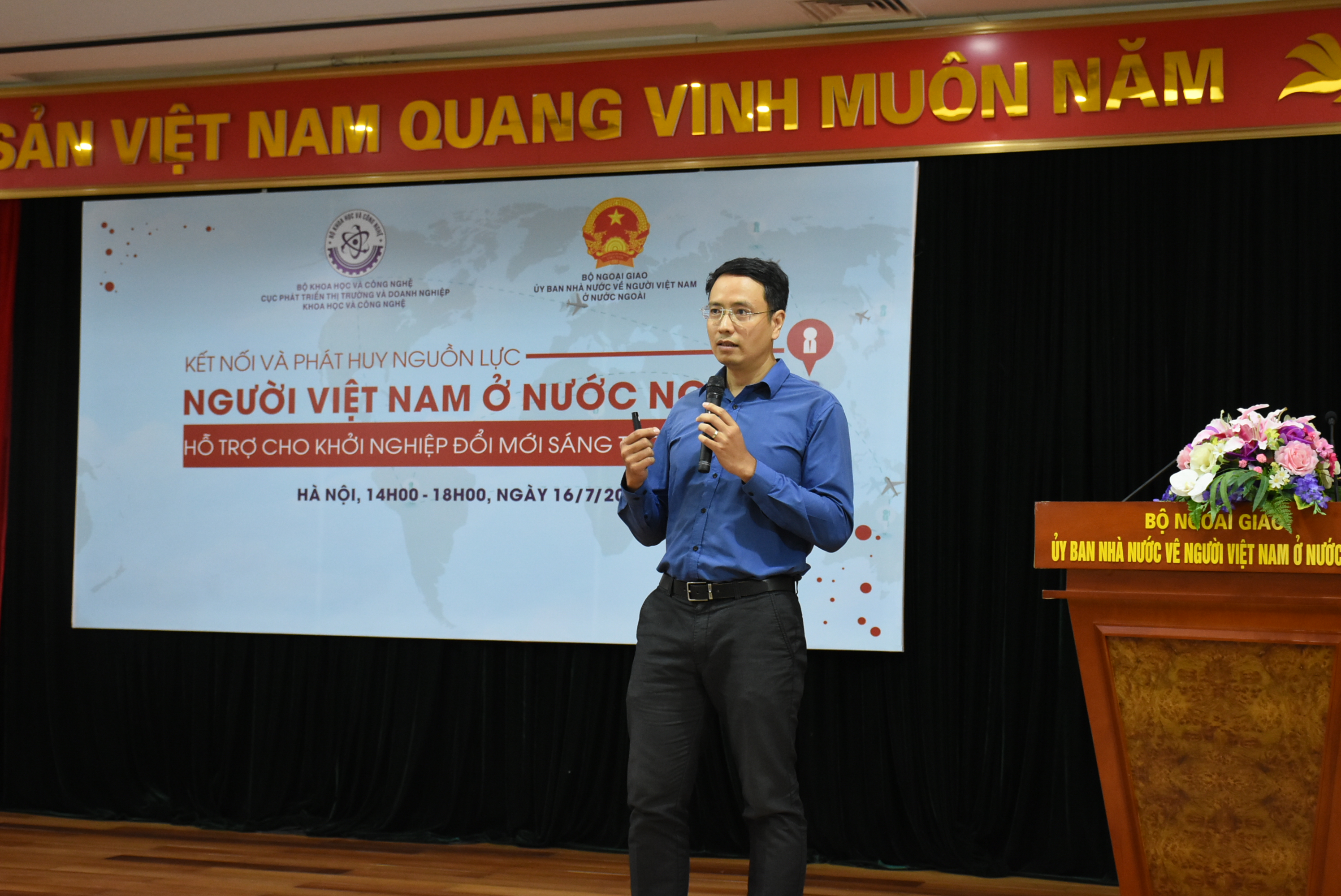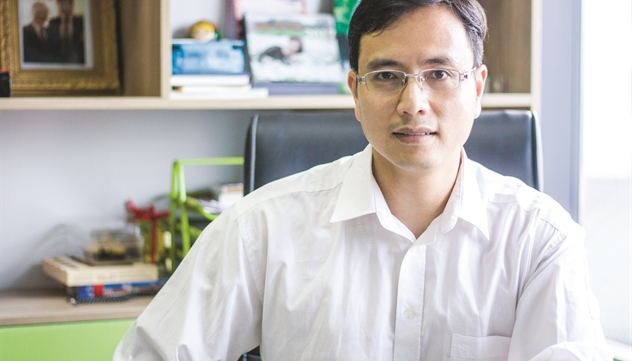Having worked for many years as a computer science engineer for some American companies in Silicon Valley, Dr. Cao Anh Tuan believes that biotechnology, especially genetic analysis will become one of the most thriving businesses in the future.
In 2018, Tuan and some of his friends launched a startup named Genetica in Vietnam, specializing in applying artificial intelligence (AI) systems to genetic analysis in order to figure out some practical solutions to human health problems.
In March this year, Genetica successfully raised US$2.5 million from the pre-Series A round after accumulating more than 10,000 users just during the first 12 months of launching its products and services.
Asian genomes
As a Silicon Valley engineer, 38-year-old Tuan has experienced various phases of the development of the genetic analysis industry in the U.S.
In the early days of the industry, genetic analysis was only limited to a small circle, but it has been gradually expanded to various sectors.
The cost of a DNA testing kit has decreased to just dozens of U.S. dollars from around $4,000.
With these changes, Tuan mulled over launching a similar business for genetic analysis in Vietnam.
He found that there are some clear differences between Western genomes and Asian ones when he began doing the first research on genetic analysis nearly ten years ago.
Due to these characteristics, applying genetic analytical technologies that are popular in the U.S. to decoding Asian people’s genomes cannot reach a perfect resolution, Tuan thought to himself.
That is a niche market that he would like to dive deeper into. To date, one of the most popular products of Genetica is a genetic testing package called G-Immunity, which helps anyone find out three essential answers about themselves to three questions relating to respiratory diseases.
The first question addresses a person's risk of catching seasonal flu while the second explores the risk they can catch a virus that is from the same family as the coronavirus or the H5N1 and H1N1 influenza.
The third question assesses how one person’s condition can become severe when they catch a virus.
Thanks to big data from G-Immunity, Genetica took advantage of some existing methods when the COVID-19 pandemic hit.
They were able to update the genetic testing kit with data relating to the SARS-CoV-2 virus in just six months after the pandemic emerged in China in late December 2019.
Tuan is so proud of his startup being the first company in the world that can warn people of the risk of catching the SARS-CoV-2 virus in the Asian community by decoding its genome.
Genetica is now focusing on some issues in association with the COVID-19 pandemic, Tuan told Tuoi Tre (Youth) newspaper in an interview.
With thousands of Vietnamese having been genetically tested, Genetica’s machine learning system can calculate and suggest some warnings about the risk of suffering acute respiratory distress syndrome (ARDS), which occurs when fluid builds up in the tiny, elastic air sacs in the lungs.
Genetica works with the Central Hospital for Tropical Diseases in Hanoi to look at whether the Vietnamese genomes have any special mutations to deal with COVID-19 effectively, given the fact that Vietnam has registered a lower number of deaths and severe cases than many other countries in the world to date.
Eventually, Genetica would like to embark on a project that can judge the compatibility between the type of gene and the kind of COVID-19 vaccine.
Just one standard
Apart from the biggest genetic diagnostic laboratory based in San Francisco, Genetica is collaborating with some high-standard labs in the world, especially in Singapore and Vietnam, to expand their market.
Genetica secured prestigious CLIA and CAP certificates, which set quality standards for the genetic tests performed in all laboratories in the U.S.
|
|
| Cao Anh Tuan is a co-founder and CEO of Genetica. Photo: Genetica |
The startup works with two other companies that pioneer in the DNA diagnostic industry, Illumina and Thermo Fisher, to develop a special processor.
The chip meant for Asian people’s genomes is recognized by Illumina with an accuracy of up to 99.99 percent.
In a meeting held by the State Committee for Overseas Vietnamese Affairs in July, Genetica’s CEO Tuan proudly said that they would launch the first lab with a CLIA certificate in Vietnam in a few months.
This would be one of a few labs securing such a kind of certificate. Currently, there are two labs with CLIA in Southeast Asia based in Singapore and Malaysia.
The CLIA certificate not only covers machinery, technology, and human resources, but also rigorous principles of delivering services, among which are HIPAA standards on protecting customers' personal data.
“The difference in quality standards between countries is one of the biggest obstacles to us,” said Tuan.
“While in the U.S., we can deal with this conveniently with electronic signatures, in Vietnam, we still have to meet the standards by signing consent agreement forms between the company and the customers on paper."
Genetica only shares one customer’s personal data in their agreement, which results in some embarrassing situations, according to the CEO.
“One time, there was a husband who made a call to our staff expressing his anger at us not letting him look at his wife’s genetic test results," Tuan recounted.
"He couldn’t accept that because he was the person who made the payment.
“Our slogan is wherever you are, you will receive the same service from Genetica.
“We don’t want to make anything so-called 'back-door' or the culture of accepting underground deals, we definitely don’t sacrifice our service quality standards for any reason."
Genetica’s products and services help families decode their children’s genomes, allowing them to map out the way of raising and educating the kids healthily and successfully.
The startup’s machine learning system can help give warnings of 18 kinds of cancer, which can give customers more time to screen for and potentially prevent them in the early stages.
Cao Anh Tuan has a degree in computer science from the University of Cornell in the U.S.
He is the co-founder and CEO of Genetica.
Tuan is in charge of the company’s exclusive machine learning system meant for genetic analysis.
Before launching Genetica, Tuan worked as a chief scientist at Datometry in San Francisco.
He was a big data and artificial intelligence engineer at Google.
Aspiring for Vietnamese brand name in genetic analysis
Cao Anh Tuan cannot forget an experience he had when he went to Singapore many years ago.
At that time, he was asked why the Vietnamese came to Singapore to treat their diseases and the Singaporeans embraced domestic health services.
In Tuan’s opinion, he feels confident that Vietnam can become a hub for genetic analysis in Southeast Asia in near future.
As an experienced engineer in computer science in Silicon Valley before launching the startup, Tuan was extremely familiar with competitive pressure in the genetic analysis market.
So he believed that Genetica’s persistent strategy would bear fruit in the long term.
He shows his confidence in the firm's capability to persuade customers with its high-quality services.
“Our service quality is the same at both our laboratories [in Singapore and Vietnam], but if customers send their genetic data to our Vietnamese lab, they will save a lot of time and enjoy a discount of around 30 percent,” explained Tuan.
He hopes they can gather data from around 50 percent of customers based in the Southeast Asian nations that could be analyzed in Vietnam by 2022.
To date, Genetica has received licenses to launch its services in ten countries.
They aim to expand their business network beyond Southeast Asia, becoming a leading company in the genetic analysis industry that can meet the demands of nearly one billion people of East Asian origin around the world.
Like us on Facebook or follow us on Twitter to get the latest news about Vietnam!





















































